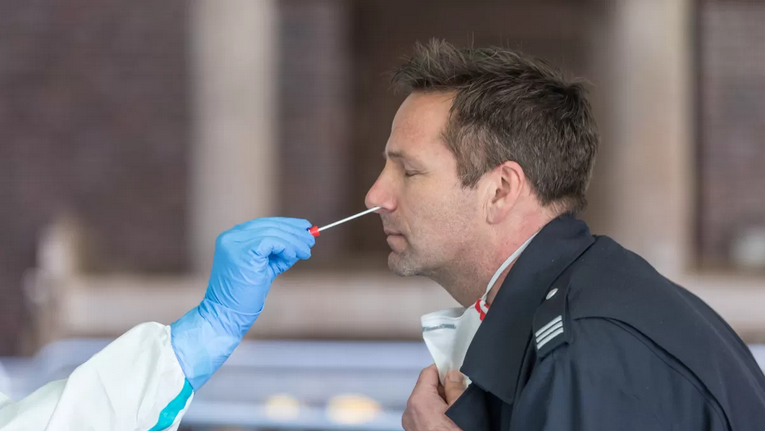Yesterday I wrote about how 10% of the passengers on two flights from South Africa to The Netherlands could test positive for COVID-19 upon arrival to Amsterdam. Most of the reporting claimed all passengers received pre-departure antigen testing, so I looked at possible places where the system could have broken down.
When researching the post, I found several commenters who said that passengers traveling from South Africa to Amsterdam only needed to show proof of vaccination and not a negative test. I could not find any current information about a negative antigen test requirement, except for a single page on KLM’s South African website. At the time there was no statement from KLM or either government about if the passengers all received testing before boarding the flights.
Aljazeera received a statement from KLM saying that all passengers either tested negative or showed proof of vaccination before boarding planes in Cape Town and Johannesburg.
A spokesperson for KLM, the Dutch arm of Air France, earlier said the passengers on the flight had either tested negative or shown proof of vaccination before getting on planes in Cape Town and Johannesburg.
We don’t know the breakdown of how many positive cases were in vaccinated passengers, but KLM suspects many of the cases were from that group.
The spokesperson said it was possible many of the positive cases were among vaccinated people, or that an unusual number of people developed infections after having tested negative.
In addition, the positive cases have been sequenced and 13 of the 61 positive cases were caused by the new Omicron coronavirus variant.
If there was no variant of concern in South Africa, the passengers would not have been screened upon arrival. Subtracting the Omicron variant, there still would have been 48 positive cases on board the planes and we would have never known.
It’s the shortcoming of depending on vaccinations to control the spread of COVID from country to country. If a passenger has a very mild infection, it may even escape a rapid antigen test and only be discovered by a molecular test.
We’ve already been down the road of requiring all passengers to provide a negative molecular test, usually a PCR, before travel. It’s time-consuming, difficult to coordinate while traveling, and can be costly. Passengers put up with the hassle because it was the only way to travel. Instead, the trend is to show proof of vaccination since it’s more widely available and an easier to administer screen to keep out COVID.
However, the holes in the fully-vaccinated screening system were seen earlier this year when Iceland went from requiring a PCR test upon arrival to not requiring testing for fully-vaccinated visitors. Cases began to rise quickly after that and restrictions were put back into place.
The US requires a negative test for all passengers, age two and up, entering the country by air. Vaccinated passengers can have a result within 3 days while unvaccinated passengers must show a result within 1 day. Entering the country by land only requires proof of vaccination.
For the time being, I’d be ready to get a COVID test before traveling internationally, regardless of your vaccination status. While being fully vaccinated dramatically decreases your chance of becoming severely sick or dying from COVID, breakthrough infections are becoming more common. As long as countries are concerned about the number of cases, testing at the border is here to stay.
Want to comment on this post? Great! Read this first to help ensure it gets approved.
Want to sponsor a post, write something for Your Mileage May Vary or put ads on our site? Click here for more info.
Like this post? Please share it! We have plenty more just like it and would love it if you decided to hang around and sign up to get emailed notifications of when we post.
Whether you’ve read our articles before or this is the first time you’re stopping by, we’re really glad you’re here and hope you come back to visit again!
This post first appeared on Your Mileage May Vary
Join our mailing list to receive the latest news and updates from our team.

